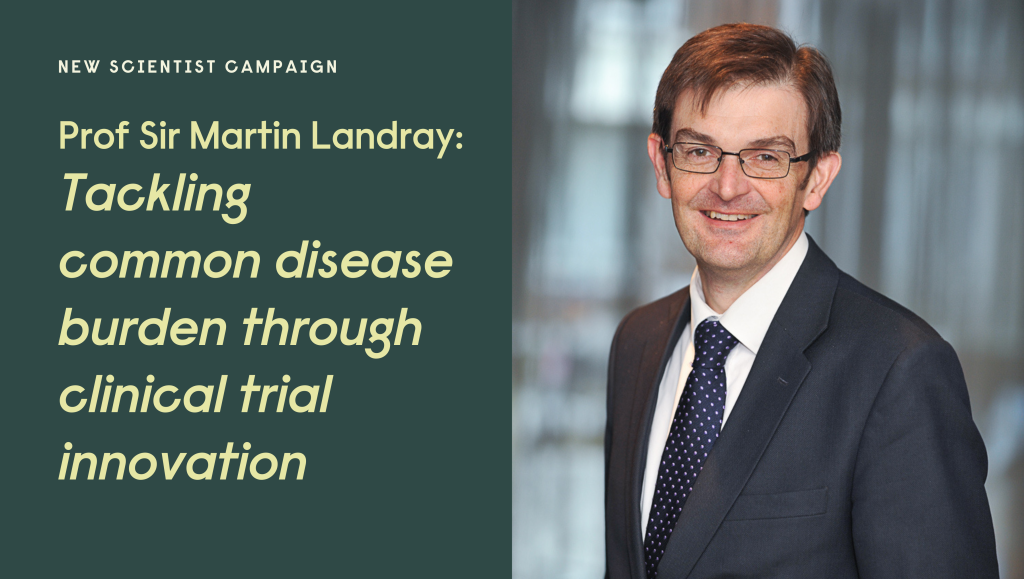Tackling common disease burden through clinical trial innovation
Prof Sir Martin Landray explores the pressing need to transform clinical trials and how to overcome the biggest challenges.

Clinical trials are the difference between treating with hope and treating with knowledge.
With an explosion in therapeutic opportunities — personalised cancer vaccines, gene-editing for lifelong cholesterol reduction, annual injections to lower blood pressure and novel therapies to prevent the onset of dementia — clinical trials are essential to establish whether what looks good in the lab is safe and effective in practice.
Overcoming clinical trial challenges
The need for such advances is pressing — the burden of common diseases, health disparities and increasing healthcare costs — while life expectancy for many falls. However, the traditional clinical trial enterprise isn’t suited to tackle these big challenges. Many promising treatments never enter late-stage development; many that do are only studied, and therefore only ever used, in niche populations.
COVID-19 showed that when the incentives of the drug development industry, healthcare system, patients and wider society are aligned and when clinical trials are appropriately designed and delivered, we can generate the evidence needed to tackle a major health threat.
Shaping successful clinical trials
The RECOVERY Trial (which I co-led) enrolled over 48,000 patients, producing global practice-changing results in just a few months and saving over a million lives. Initiatives such as NIHR’s ‘Future of UK Clinical Research Delivery’ and the US Advanced Research Projects Agency for Health’s (ARPA-H) innovation network offer substantial investment in infrastructure and governance.
However, for real improvement, we need to significantly update the way trials are conducted — with patients as partners. That’s why we established Protas. We work across sectors to design trials that provide compelling answers to important questions by making full use of advances in information technology and the availability of real-world health data (with appropriate safeguards).
We work with patient communities and clinicians to increase participation. We work with policymakers to shape regulatory guidelines to embrace innovation and facilitate the generation of reliable results.
We might be coming out of COVID-19, but other ‘pandemics’ (areas of major disease burden) are hiding in plain sight. By recognising and actively applying clinical trial innovation, in the UK and elsewhere, we can start to drastically transform global health, people’s lives and the health systems supporting them.
This article was originally published in print in New Scientist (Thursday 14 December 2023) and online on Global Cause, as part of a Mediaplanet campaign.